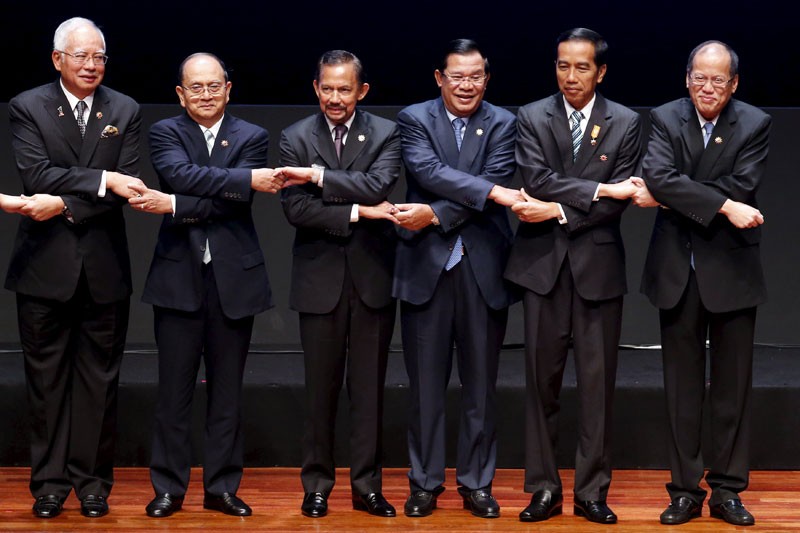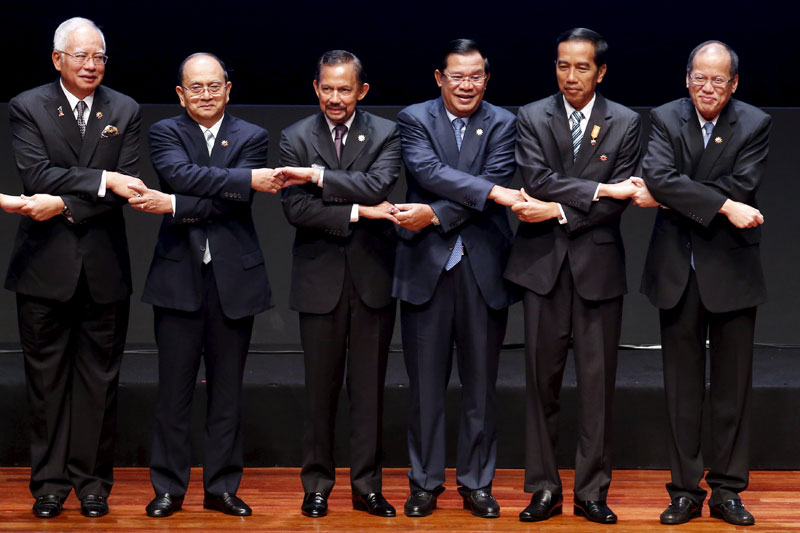The National Assembly will petition Asean officials to remove a reference to the South China Sea maritime dispute from an upcoming joint statement, officials confirmed on Tuesday, a move some analysts and diplomats say will again threaten regional cohesion.
The request marks just the latest such intervention dating back to 2012. Cambodia has refused to join other Asean members in issuing statements disputing China’s sweeping efforts to assert control over waters that also are claimed by the Philippines, Malaysia, Vietnam and Brunei.

CPP lawmaker Cheam Yeap confirmed on Tuesday that the National Assembly will ask the head of the Asean Inter-Parliamentary Assembly (AIPA) to strike a paragraph referring to the conflict from a statement the organization plans to issue at the end of a September meeting in Vientiane.
“After we received a general draft statement from the general secretariat of AIPA in Jakarta, we discussed it and agreed we should take out the paragraph on the South China Sea because our country is not involved,” Mr. Yeap said in a recording of an interview with reporters from the Reaksmei Kampuchea Daily.
Mr. Yeap said he did not know whether the AIPA’s general secretariat would heed the Assembly’s request, but reiterated Prime Minister Hun Sen’s position that the countries involved in the dispute should negotiate directly with China to find a resolution.
“I entirely agree with the recommendations and statements of the Cambodian government and that Samdech Prime Minister Hun Sen has mentioned—that it is right that Cambodia maintains unity and territorial sovereignty,” he said.
Analysts and some diplomats have claimed Cambodia, which received half a billion dollars in aid from China in July in the wake of a U.N.-backed tribunal’s ruling invalidating China’s claims, has undermined the unity within the bloc.
“If Cambodia continues to act as a stalking horse for China’s interests at the expense of the ASEAN community building, ASEAN should consider altering its consensus decision-making along the line of economic decision-making, where the majority can proceed and the minority can opt out or join later,” Carlyle Thayer, a Southeast Asia expert at the Australian Defense Force Academy, said in an email earlier this month.
If Cambodia continued to obstruct proceedings, it should be warned that its Asean membership “could be put on probation, suspended or withdrawn,” Mr. Thayer added.
Asean diplomats, speaking on condition of anonymity, voiced frustration to international media about Cambodia’s stance during meetings in July.
Thitinan Pongsudhirak, director of the Institute of Security and International Studies at Chulalongkorn University in Bangkok, said the issue was now “the elephant in Asean’s room.”
The organization “can sweep it under the carpet for the sake of joint statements, but it will keep reappearing until it is addressed one way or another,” he said.
In a speech on Monday, however, Mr. Hun Sen downplayed calls for Cambodia to leave Asean because of its South China Sea position.
“I send the message back that Hun Sen won’t let Cambodia leave Asean,” he said.




